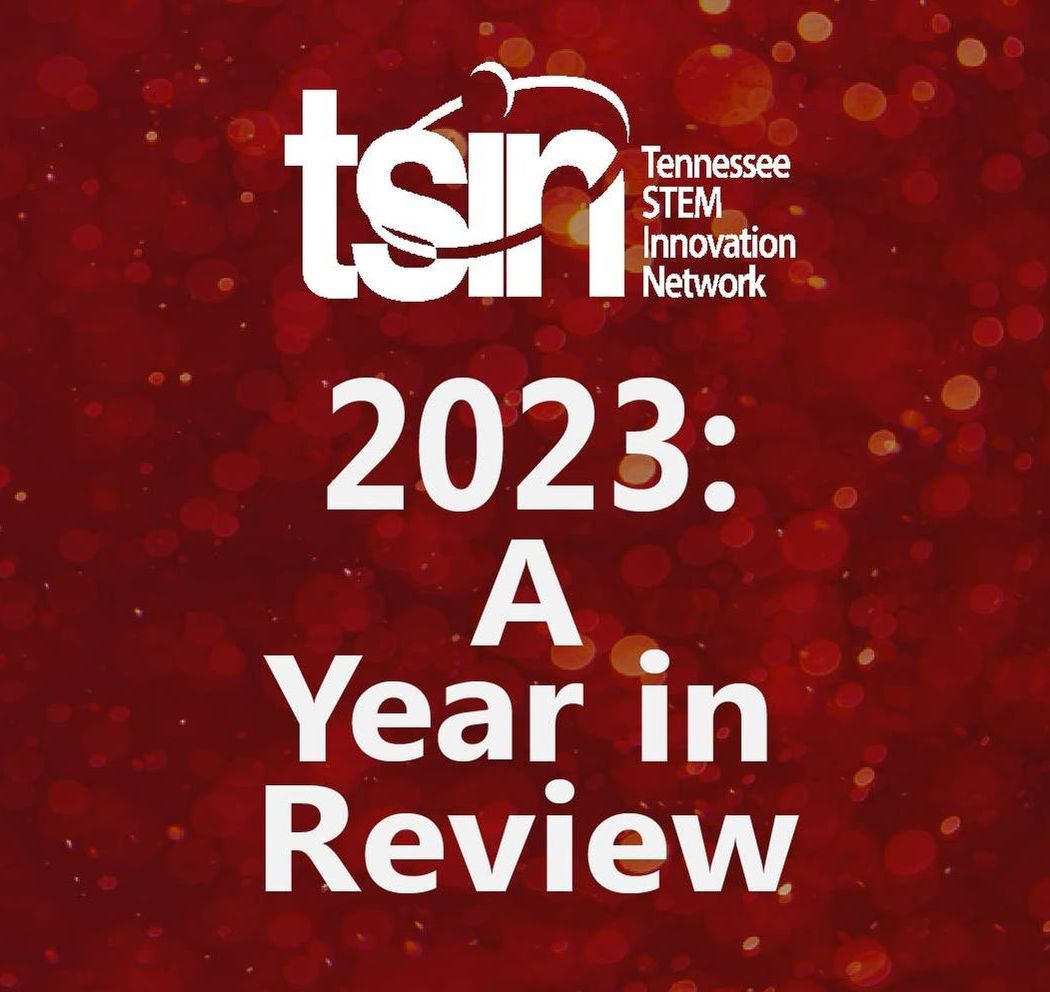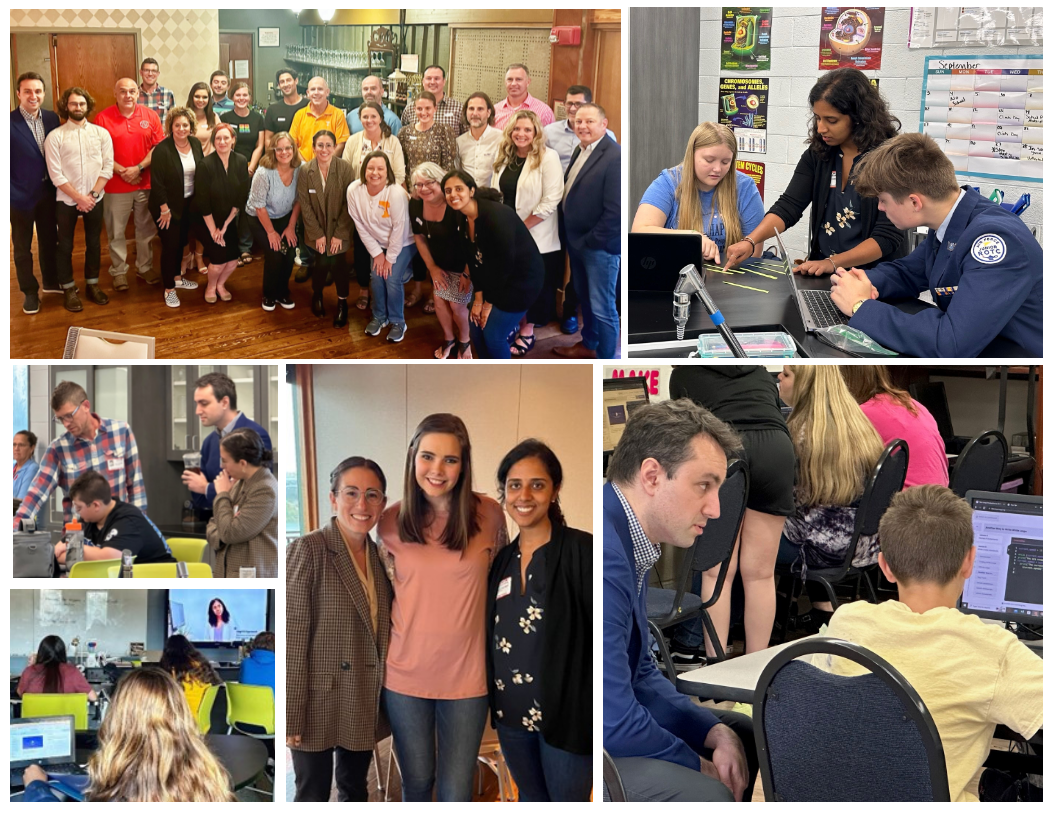



STEM School Chattanooga is a Platform School of the TSIN with the primary task of developing best practices in STEM teaching and learning to share with the rest of the state through the STEM Innovation Hubs. This new high school opened in the fall of 2012. The TSIN asked Principal Tony Donen to share his reflections on their first year in operation.Read more The post STEM School Chattanooga – Reflections on Year One appeared first on Tennessee STEM Innovation Network.
STEM School Chattanooga is a Platform School of the TSIN with the primary task of developing best practices in STEM teaching and learning to share with the rest of the state through the STEM Innovation Hubs. This new high school opened in the fall of 2012. The TSIN asked Principal Tony Donen to share his reflections on their first year in operation.

Dr. Tony Donen
STEM School Chattanooga … how did you get here? About a year ago, STEM School Chattanooga was more of an idea than a reality. The building for the school was under construction in an old warehouse on the backside of a community college business training facility with funds for the construction still in limbo. A student lottery had been completed in which students signed up to attend the school with no more information on what it would be beyond a three paragraph description on the county’s website. There was a forward-thinking grant filled with incredibly challenging requirements and an unending list of benchmarks. A small group of teachers was hired to tackle this challenge, but professional development funds for training these teachers were limited. And, of course, there was me. A principal from a traditional school system with a background and degree in engineering and a fervor for changing school but stuck in public school systems that were focused on archaic and rigid practices dominated by standardized testing punishment or recognition. Needless to say, the glass could easily have been more than half empty. But it was a perfect situation.
STEM School Chattanooga had one extremely and important thing going for it. Chattanooga’s business community gets it. Parents get it. Educators get it. Schools are behind and disconnected from what happens outside the walls of their buildings. Not because teachers want that, but because there is a disconnect between understanding what is wanted outside the walls and what is required inside the walls. Chattanooga knew there was a disconnect and the community made it a priority to work towards breaking down these barriers.
We began our school not with a focus on deciding what we needed to achieve based on what educators knew already (testing), but with a focus on figuring out what was needed outside the walls of our building and bringing that in to what we do. We developed a mission statement to focus our work towards bridging that gap. Three clear tenets became clear and evident in our pursuit of designing the students’ priorities – critical thinking, collaboration, and innovation . If our students could leave with skills in critical thinking as defined by accessing, using, and applying information; if they knew how to work collaboratively, which involves knowing when you need to be independent and when you need to be together; and if they could create and design without having to be told what to do, we knew our students would be successful beyond the walls of our school. These tenets may not have been the perfect three, but they were as close to what we heard over and over leading up to the opening of the school last August and again throughout our time with all our stakeholders throughout the year.
With critical thinking, collaboration, and innovation at our core, it then became evident that the one unrelenting and clear concept throughout the grant was for students to be involved in project- and/or problem-based learning activities. However, this approach to learning is not very well developed in our country, especially in the southeast region. So our first priority was to figure out how to design units of study that would focus on STEM concepts across our curriculum. This design process was neither easy nor quick. We found other educators who had implemented PBL (project-based learning) work in singular courses but to do it across the entire school seemed overly optimistic. Creating and implementing these PBL units across the school took the majority of our time in planning and developing our school curricula. However, it was vital to our success as a school for us to make these units our foundation for implementing STEM and our three key tenets.
Along the same lines, it became increasingly clear that because our students would have access to 1-to-1 technology , it would be easy to use the student iPads as fancy notebooks. But if we expected our students to innovate, we needed to do so as well. So we created a lead teacher position from our teaching staff and focused the lead teacher on finding ways to effectively use the iPad to the greatest extent possible in promoting student critical thinking, collaboration, and innovation. What came of this focus was a tremendous paradigm shift in the culture of the school. No longer was technology used only for teachers to spice up lessons and try to make them attractive. Instead, technology in the hands of the students empowered the students. The reason … the focus was on how the students could use the technology to build their critical thinking skills, collaborate with others in a professional and purposeful manner, and develop and create innovative ideas and products. 1-to-1 technology became a lever by which we were able to transform school from a teacher-directed and -centered environment to a student-owned and -initiated workplace.
It all sounds great, right? It certainly was not easy. There was a problem with this new established mission, creating curriculum around STEM PBL work, and using technology as a student owned initiative. The problem was two-fold: teachers were not comfortable with students having control and students wanted to be told exactly what to do. You would think that teachers would want students to be self-directed. That is true, but only within the confines of what the teacher wants the student to do. Actually allowing students to make decisions is not something teachers have much, if any, comfort level in doing. “Our students are not responsible enough to make their own choices” seemed to be a common statement. Yet for all the teachers discomfort, the students were even more resistant. Students wanted the following arrangement: 1) Teachers tell students exactly what to do; 2) Students regurgitate those items back to the teacher; 3) Students receive a high grade for regurgitating well. The idea that students should develop, create, test out, fail, and re-do was more foreign to the students than to the teachers.
It turns out that if you have a decent vision (i.e. we want students to think critically, collaborate, and innovate) and if you can create a culture where failure is not an end point but a part of the process, you will see a change in thinking. It took many months but by mid-year, the majority of students began to understand that this school was not about traditional schooling – listen to information, repeat the information, move on – but about thinking . Failure became an opportunity, not an endpoint.
As for teachers, they still like to be in control. However, they like it even more when students are able to overcome obstacles, talk about learning instead of completing, and when students do work at a level beyond the teacher’s expectation. Control means less to a teacher when they see student improvement, pride, and grit.
Here were some unintended good consequences of our work this year.
At the end of this year, I am proud of how far we have come. We still have a long, long way to go. We have not arrived and are just starting to really understand what it means to help students be critical thinkers, collaborators, and innovators who create and produce quality work. Though we don’t have it figured out, we at least feel like we are going in a worthwhile and needed direction.
The post STEM School Chattanooga – Reflections on Year One appeared first on Tennessee STEM Innovation Network.



